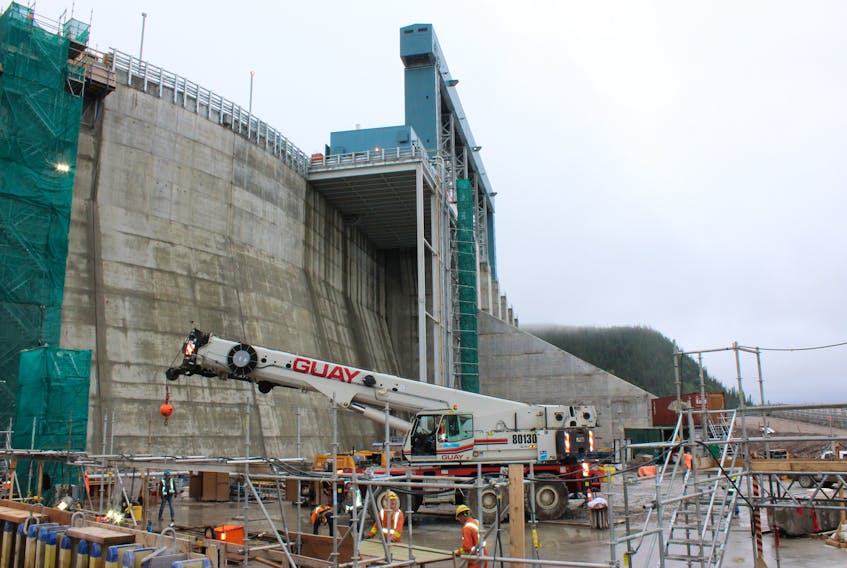Throughout the development of the Muskrat Falls hydroelectric project, the campuses of Memorial University of Newfoundland (MUN) have hosted presentations and debates, from those for and against the project, aimed at educating, challenging assumptions and giving members of the public a chance to have their say on all that the megaproject entails.
That history will continue this week, with a two-day symposium on the $12.7-billion project at the university’s St. John’s campus.
The symposium is scheduled for Friday and Saturday. It is hosted by the faculty of humanities and social sciences at MUN, and members of the public are encouraged to attend one or more of the sessions. It’s free of charge. People don’t have to have studied the project to take part.
The days are broken down into topical sessions, featuring panels of academics, artists, journalists, and people living closest to the Muskrat Falls dam site, including Indigenous people sharing their experiences throughout the project’s development. All sessions will be held in the Engineering Building (Room: EN-2006).
RELATED STORIES:
Muskrat Falls project ‘over-governed’: Nalcor CEO (February 2018)
Land Protectors stage peaceful demonstration at MUN
The idea is to bring together “scholarship, ideas and art,” to talk about the project as we now know it, according to co-organizer Lisa Moore.
“We want people there to explore this topic with,” she said, adding there is a lot of information coming out about the project, but rather than disengaging or tuning out, she sees a “tremendous hunger for this information” in the province.
She said the average individual who hasn’t followed the project or been involved to this point shouldn’t feel like understanding the environmental concerns, or the financial agreements, or the project as a whole, is an insurmountable task.
There are facts available that can be gathered and understood, and a forum for discussion in the symposium.
“It’s about recognizing where we are and what we can do about where we are,” she said.
Moore said she sees personally a new movement in the province in terms of public engagement and protest in the province, tied to how Muskrat Falls was decided on and progressed, to energy prices and energy security, and that makes it a good time for the symposium.
She will be part of the first session, at 7:30 p.m. on Friday, titled, “Art and protest in the age of Muskrat Falls.”
Sessions on Saturday will begin at 9:30 a.m. NT, with “Political economy of Muskrat Falls.” It is followed at 11:20 a.m. with “Indigenous resistance: Perspectives from Labrador and beyond.” At 2:15 p.m., the schedule offers “New research on living under threat in Labrador.” The final session starts at 4 p.m. and is on “Journalism, democracy and control of information.” A reception will close out the second day.
More information about the symposium and guest panellists is available online at www.muskratmun.com.









